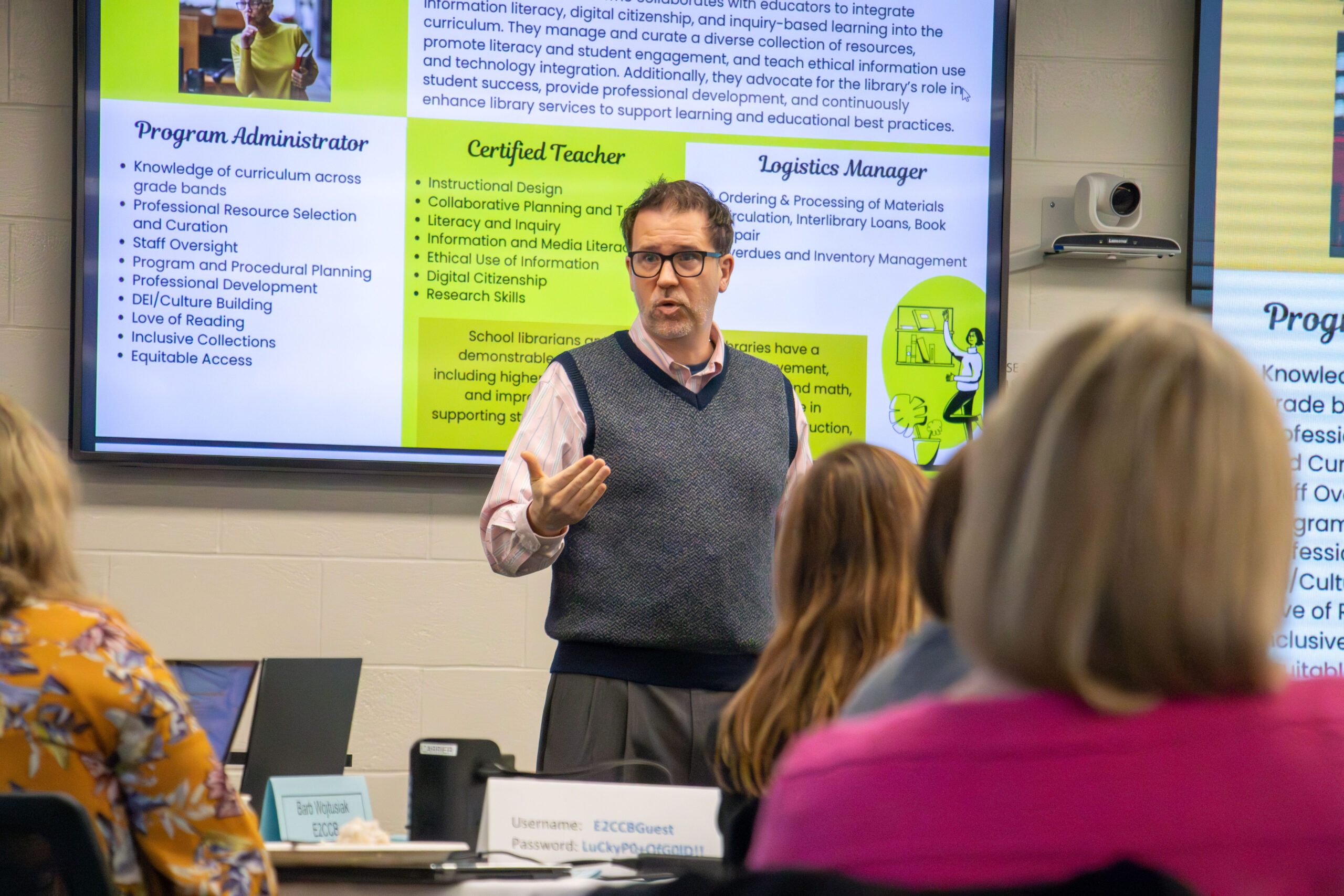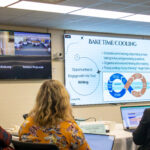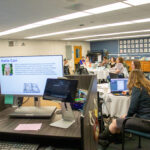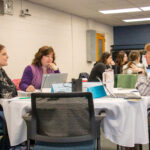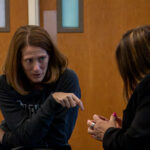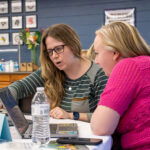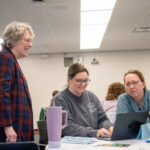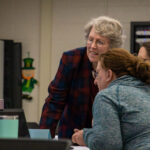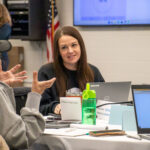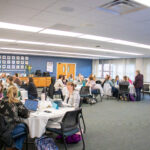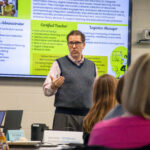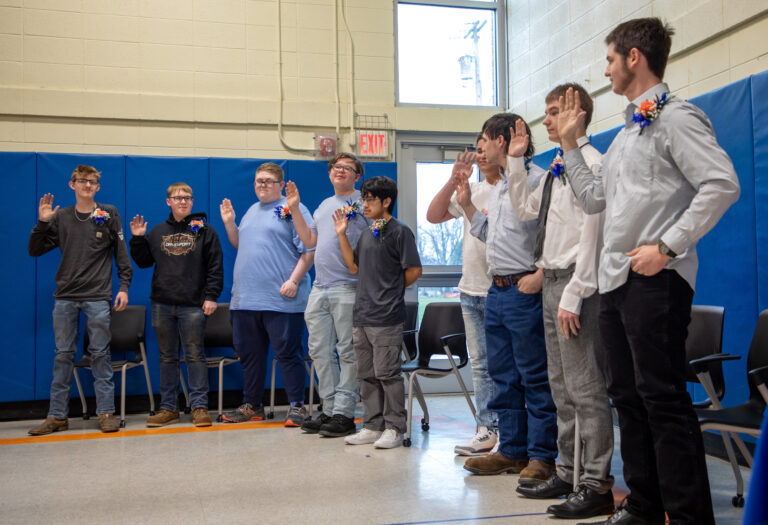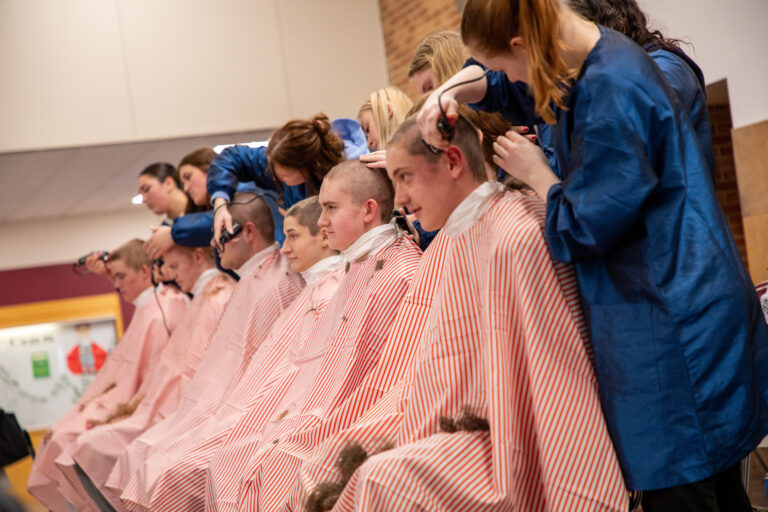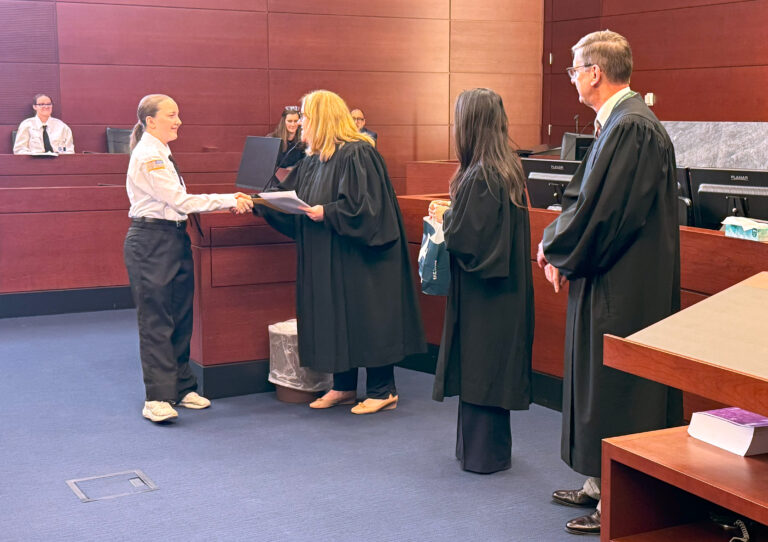E2CCB School Library System Coordinator Speaks To Role Librarians Can Play In Science of Reading
At the most recent Science of Reading Symposium, Brian Mayer, E2CCB School Library System Coordinator, delivered a passionate presentation on the crucial role school librarians play in supporting literacy initiatives, particularly the Science of Reading. Mayer’s remarks were a powerful reminder of the untapped potential school librarians bring to the educational table, advocating for a shift in how they are perceived and utilized within schools.
“Your school librarian is not just the person who checks out books and says ‘shh.’ There is so much more to the role,” Mayer emphasized, underscoring the need to redefine the traditional image of the school librarian.
He pointed out that school librarians are highly qualified educators, requiring a master’s degree to enter the profession. This academic background, combined with their certification as teachers, enables librarians to be key partners in the classroom, supporting not only traditional literacy but also media literacy, research skills, and citizenship education.
Mayer explained that well-resourced school libraries with qualified librarians can have a direct and positive impact on student achievement. Research has shown that such libraries are linked to higher test scores and overall academic success. Mayer stressed the importance of fully leveraging the expertise of school librarians to enhance student learning and ease the burden on classroom teachers.
“School librarians are uniquely poised to support the work that’s happening in classrooms,” he said. “They extend the work by providing resources, creating a supportive environment, and engaging students in ways that complement classroom learning.”
One of the central themes of Mayer’s presentation was the idea that librarians play an essential role in supporting the implementation of the Science of Reading. He noted that librarians can build collections that support classroom instruction, including decodable books and materials designed for diverse learners.
“Librarians are responsible for curating collections that enhance what’s happening in the classroom, including the Science of Reading,” Mayer explained, emphasizing that their expertise in selecting and organizing resources is a critical element of successful literacy programs.
Beyond curation, Mayer also highlighted the ways in which school librarians can integrate Science of Reading principles into their existing work. Through activities like read-alouds, book selection, and author studies, librarians can model key literacy practices, reinforcing concepts that are being taught in the classroom. Mayer encouraged educators to advocate for greater integration of librarians into the broader literacy conversations within their schools.
“Librarians should be part of those science of reading conversations,” he said, stressing the value of their contributions in helping to model language and literacy skills.
In addition to their instructional contributions, librarians create physical spaces that support literacy development. Mayer pointed out that school libraries can be hubs of learning, providing safe and inclusive environments that encourage student choice and independent reading. These spaces, he noted, can reflect the diverse needs and interests of the student body, offering “windows and sliding glass doors” that connect students to new ideas and perspectives.
Mayer also discussed the importance of librarians in extending literacy efforts beyond the school walls. He noted that school librarians can facilitate connections between the school and families by providing literacy resources, organizing events like literacy nights, and collaborating with public libraries and other community organizations.
One of the most powerful points Mayer made was the need for greater collaboration between librarians, classroom teachers, and other educational stakeholders. He emphasized that the successful implementation of the Science of Reading requires a whole-school effort, with librarians playing a central role in weaving together the different strands of literacy instruction.
“It’s not just one person’s job,” Mayer explained. “It’s a whole building and a whole community approach.”
Mayer also called for greater advocacy and recognition of the critical role librarians play in education. He likened the underutilization of librarians to taking a pet to the veterinarian only for a simple task like nail clipping — missing the full potential of their expertise. He also stressed the importance of elementary librarians, pointing out that while library services are often mandated at the high school level, the lack of librarians in elementary schools leaves a gap in foundational literacy instruction.
Mayer’s presentation was preceded by April’s Science of Reading Symposium’s Featured Presenter, Katie Carr — a renowned literacy specialist, researcher, and curriculum writer.
The Science of Reading Symposium series is funded through New York State’s RECOVS: Recover from COVID School Program grant. Erie 2-Chautauqua-Cattaraugus BOCES received over $1 million to address learning loss and mental health. As part of this effort, E2CCB is expanding literacy support by hiring instructional coaches and offering a 10-month Science of Reading Symposium series composed of some of the top literacy experts in the field.

